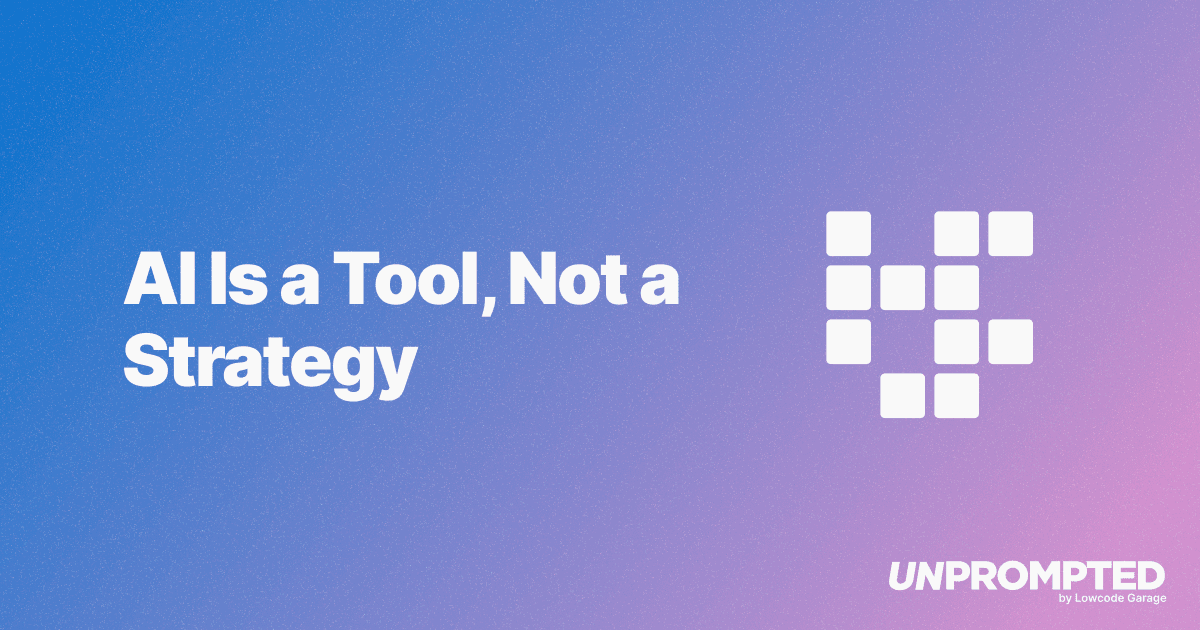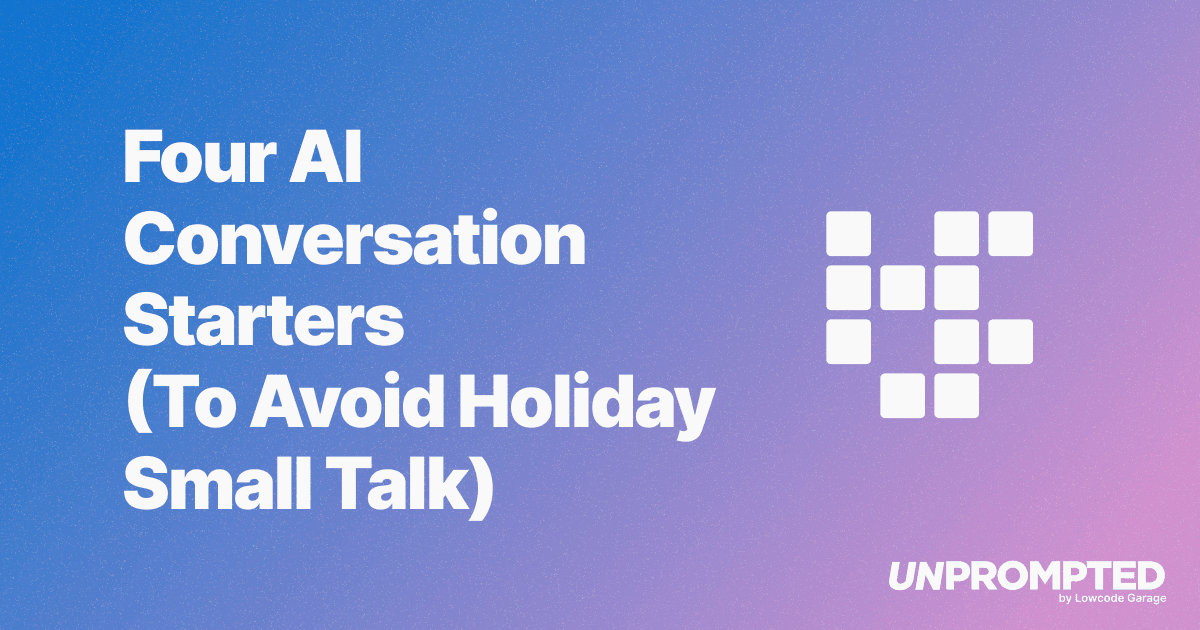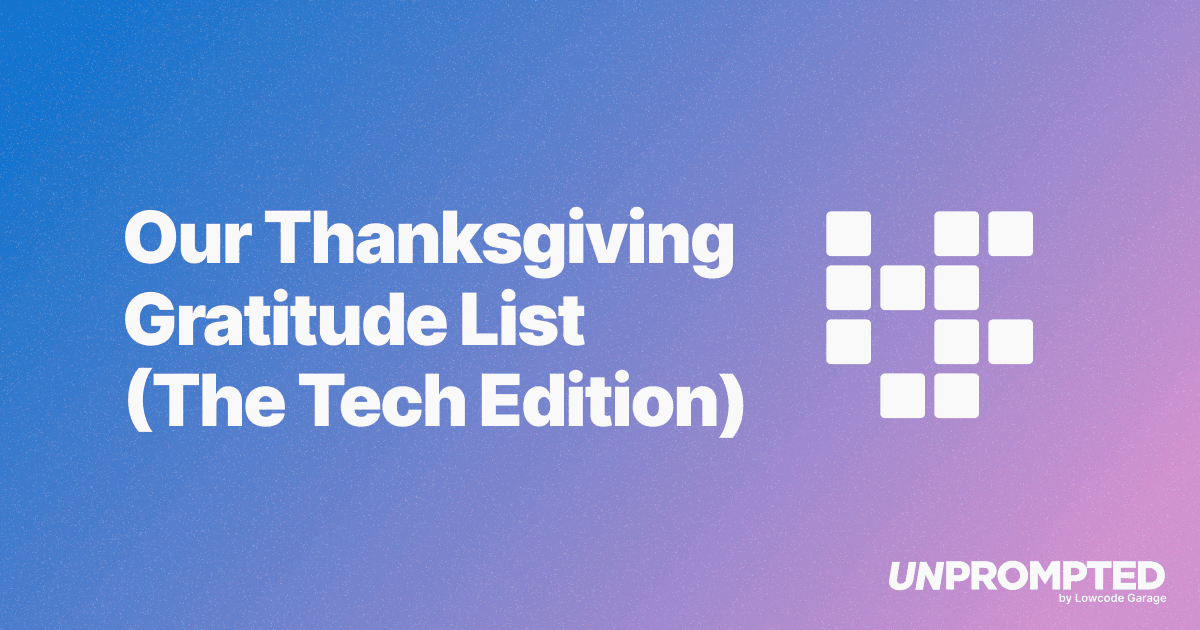From 14 Clicks to 1 Command
The next wave of UI will let you tell the web what to do.
The next wave of UI will let you tell the web what you want to do.
The way we interact with websites and apps is about to change. The next wave of user interface, or "UI," lets you talk to websites—skip the menus, skip the clicks, and just say what you want—whether that's "Give this user admin privileges" or "Sell Apple, buy Nike."
The Search Bar Is Dead
You know that feeling when you're 14 clicks deep into a website, wondering if you've accidentally wandered into a secret black hole of the internet?
We had one of those moments this week, helping a client give us admin access to their website. We knew the setting existed. We just couldn't find it. Ten clicks, 15 minutes, and several sighs later… we landed on the right page.
The problem isn't a lack of information—it's having to wade through endless pages to find what matters.
From Clicking Around to Just Asking
We're about to see the most important UI shift since Tinder invented the now infamous "swipe left, swipe right" in 2012.
Instead of navigating a maze of menus, dropdowns, and misnamed tabs, you'll just… talk to the site.
"Give this user administrative privileges."
Done.
AI-powered browsers like Dia are already letting you do this—talk to a website's content and functionality. Which means the future of the search bar isn't search at all. It's a conversation.
What This Could Look Like
Picture your Fidelity account.
Today, making a trade looks like this:
- Click "Accounts"
- Select "Checking"
- Navigate to "Trade"
- Search for the stock you want to sell
- Search for the stock you want to buy
- Enter the trade details
- Confirm
Pretty soon, it will look something like this:
"Make a trade from my checking account. Sell Apple, buy Nike. Confirm when it's done."
Why This Changes Everything
When sites can understand and act on natural language—navigation bars, footers, and endless "support" pages start to fade away. The UI becomes a single chat bar where you tell the app what you want—and it happens.
This is a total inversion of how we interact with the web. The site learns you, not the other way around.
The takeaway: We're moving from a web where you hunt for information to one where you request action. And once you've had that, going back to 10 clicks and 15 minutes will feel like using dial-up internet or calling your friend from a landline.
You Ask, We Answer
Last week, we asked you to send us your burning AI questions. One of our most loyal readers (hi, Shirley 👋) asked:
"Do I need to re-download the ChatGPT app to get GPT-5?"
Short answer: Nope. GPT-5 will automatically show up in your ChatGPT app and browser—no extra download needed. Just make sure your app is updated to the latest version in the App Store or Google Play (for bug fixes and performance improvements), but the actual model update happens on OpenAI's side. You'll know you have it because your model selector will show "GPT-5" as an option.
If you don't have automatic updates turned on for your phone, you might need to manually update the app to see the latest features.
Your Turn
Got a question about AI? A wild prediction? A gripe about how many clicks it takes to cancel a subscription?
Hit reply and tell us. You can use your name or stay anonymous.
We'll pick a few to feature in next week's edition. If you're wondering it, odds are 12 other readers are too.
Frequently Asked Questions
Continue Reading

AI Is a Tool, Not a Strategy
Henry Kravis reminds us that AI is a productivity tool, not a strategy. Strong management, cultural fit, and operational fundamentals still determine whether businesses succeed or fail.

Four AI Conversation Starters (To Avoid Holiday Small Talk)
Four timely AI conversation starters covering federal vs state AI regulation, Opus 4.5 capabilities, physical AI in construction, and Michael Burry's bet against Nvidia—perfect for surviving holiday small talk.

Our Thanksgiving Gratitude List (The Tech Edition)
Discover the AI tools transforming how we build products at Lowcode Garage. From publishing content with Claude Desktop to building prototypes in weeks instead of quarters, here's our Thanksgiving gratitude list for the tech that makes it all possible.